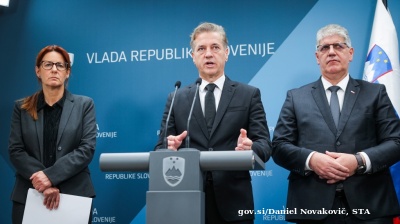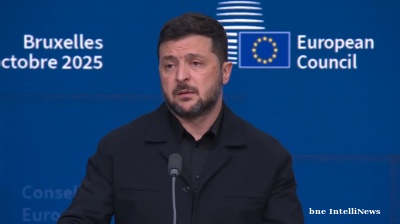Russia's second-largest oil producer, the privately owned Lukoil, will sell its international assets as a result of the new oil sanctions imposed by US President Donald Trump last week.
Together with state-owned Rosneft, the two companies account for two thirds of Russia’s oil exports, or some 4.4mn barrels a day, and half its oil production of around 10mbpd.
“PJSC "LUKOIL" informs that owing to the introduction of restrictive measures against the Company and its subsidiaries by some states the Company announces its intention to sell its international assets. The consideration of bids from potential purchasers has been started,” the company said in a press release on October 27. “The sale of the assets is conducted under OFAC wind down license. If necessary the Company plans to apply for extension of the license to ensure uninterrupted operations of its international assets.” US President Donald Trump imposed the new oil sanctions on October 22, the first sanctions he has imposed on Russia since taking office at the start of this year and the most consequential sanctions on Russia’s oil business since the war in Ukraine started almost four years ago. As bne IntelliNews has reported, the Western oil sanctions have largely failed after Russia reorientated the bulk of its trade to Asia in a matter of months in 2022.
Trump has been soft on Russia as he has been keen on trying to do a business deal with Russia as part of his minerals diplomacy. However, after multiple rounds of talks, including a face-to-face meeting between the two presidents at the Alaska summit on August 15, those talks have come to naught. As bne IntelliNews opined in a recent editorial, it appears that Trump has now finally given up on any hope of closing a deal and so has resorted to sanctions. As soon as the sanctions were announced he sent special envoy for business Kirill Dmitriev to Washington, who has been leading the business negotiations, to do damage control. But that trip ended in a PR fiasco suggesting that Trump has run out of patience.
The new US sanctions come as Europe tries to tighten the noose on Russia’s oil business. The EU just signed off on the nineteenth sanctions package that targets more members of the shadow fleet and brings forward a total ban on LNG imports to Europe to the start of 2027. The UK also imposed sanctions on Lukoil and Rosneft on October 15, as well as another 44 shadow fleet tankers.
Trump’s sanctions are more significant than the “toughest oil sanctions ever” imposed by the Biden administration in January this year that initially hit Russia’s ability to export hard and saw exports fall. However, Russian oil traders eventually found workarounds and export volumes recovered. Despite an uptick of some 6% in the price of oil on the most recent US oil sanctions, traders remain confident that Russia and its customers will again find workarounds within a few months and oil exports will continue to flow. To remove the production of the two companies from the market completely would cause a spike in oil prices.
Headquartered in Moscow, Lukoil accounts for around 2% of global output and has always tried to steer a middle path between Russian politics and open market business. The only privately owned Russian oil major, in conversations with bne IntelliNews over the years, the management explained that it was always concerned about state capture and tried to stay out of politics. However, the very size of the company has made it political and a target for sanctions. Its name derives from three oil towns in Lukoil's traditional exploration region of western Siberia – Langepas, Urai and Kogalym – but also means “onion oil” in Russian.
While Lukoil says negotiations for the sale of its international assets have already been launched, it gave no details.
Lukoil’s biggest foreign asset is the giant Iraq's West Qurna 2 oil field, in which it holds a 75% stake, Reuters reports, with an output of 480,000bpd in April.
The company also owns the 190,000bpd Lukoil Neftohim Burgas refinery in Bulgaria, the largest in the Balkans, as well as the Petrotel oil refinery in Romania.
The EU has been pressuring Lukoil to sell the Burgas refinery since 2024 after a temporary exemption for Bulgaria from the EU’s embargo on Russian oil to keep the refinery operational expired.
In addition to refineries, Lukoil operates an extensive network of retail filling stations in Romania and other countries that are linked to the Burgas refinery output. In Western Europe, many Lukoil-branded stations have been sold or rebranded, particularly in countries like Germany, the Netherlands, and the Baltic States. At one point, Lukoil even had a petrol station in the US.
Thanks to the war, the company has already been forced to sell the ISAB Refinery in Sicily, one of the largest in Italy with a capacity of 320,000bpd in 2023, to GOI Energy.
The sanctions on Lukoil will impact oil deliveries to Hungary and Slovakia, its two main European clients, that have also won exemptions to the import ban on Russian oil. Those exemptions may be rolled back as part of the nineteenth sanctions package, although Hungary has been lobbying hard to maintain them, but vetoing a start to Ukraine EU accession bid.
Lukoil’s exports to Hungary were already temporarily brought to halt in August last year after Ukraine sanctioned the transit of oil to Budapest via its territory. However, the missing oil was easily replaced by Rosneft that uses the same pipelines. The move was seen at the time as an attempt by Bankova to increase pressure on the EU to force Hungary to end the transhipment of Russian oil to an EU member.
Lukoil also supplies crude to Turkey's STAR refinery owned by Azerbaijan's SOCAR, which depends heavily on Russian crude. The company also has stakes in oil terminals as well as retail fuel chains in Europe and has various upstream and downstream projects in Central Asia, including Kazakhstan, and in Africa and Latin America, Reuters reports.
News
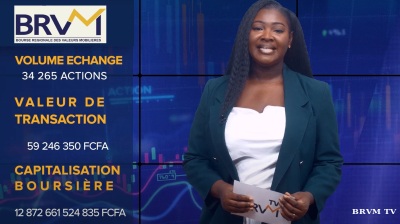
West Africa’s BRVM market cap hits record $21.2bn driven by telecoms, banks
West Africa’s regional bourse hit a record market capitalisation, up 29% YTD, supported by strong performance among telecom and banking stocks, and rising participation from domestic institutional investors.
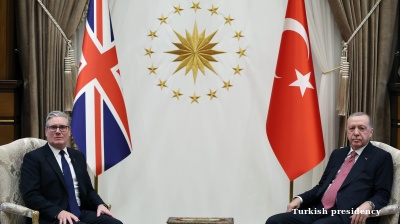
Awkward timing as British PM Starmer arrives in Turkey to sign jet deal on day Erdogan rival is arrested amid UK espionage claims
“Turkish democracy is the casualty of Europe’s rediscovery of Turkey’s strategic value,” columnist writes.
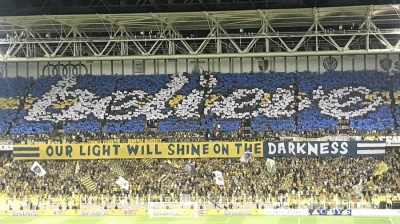
Whistle blown on hundreds of Turkish football referees with betting accounts
Investigation finds 42 gambled on more than 1,000 matches each.
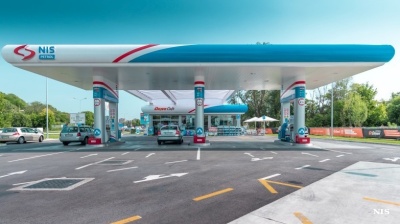
Ukraine accuses Russia of using energy blackmail against Serbia
Ukraine says Moscow is repeating tactics it previously deployed against Kyiv after Russia refuses to sell its stake in Serbia's NIS.
